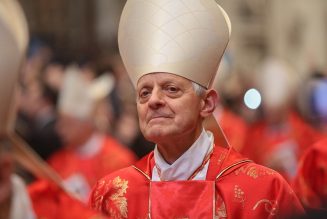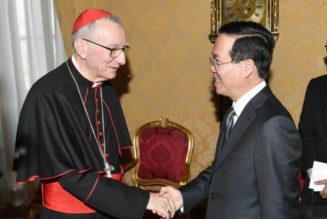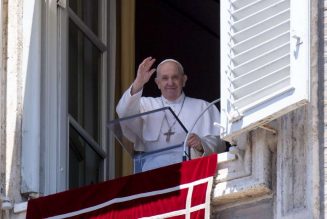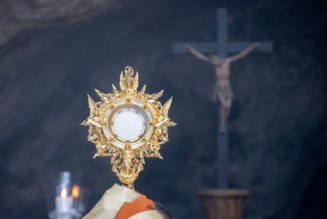“I am very anxious that she will forget me or even forget the word ‘dad,’” Losik lamented in his letter.
Losik worked as a freelance social media manager, commentator, and news analyst at Radio Svaboda, the Belarusian service of RadioFreeEurope/Radio Liberty, a U.S.-funded news organization that broadcasts primarily to former Soviet Union nations where freedom of the press is restricted.
Radio Svaboda operates out of Prague and Vilnius, Lithuania, and broadcasts via various forms of media into Belarus. As a journalist, Losik covered human rights violations by the government with an eye toward democracy. His use of the Belarusian language was itself subversive, as the country’s regime has sought to sideline the language in favor of Russian.
He was arrested in June 2020 and was later tried on charges widely considered to have been fabricated by Belarusian authorities, including incitement of hatred, “organization and preparation of actions that grossly violate public order,” and “preparation for participation in riots,” RFE/RL reported. Yuksel said several other RFE/RL journalists have been detained in recent years, including the web editor of Radio Svaboda who is also detained and in a similar situation, serving time in the same prison, as far as is known.
“The vast majority of Belarusian independent media is now either completely shut down or operating outside the country,” Yuksel noted.

Belarus is essentially ruled by the authoritarian president Alexander Lukashenko, who has been at the helm ever since the office was created in 1994. He clung to power after a disputed presidential election in August 2020 in which he claimed to have won 80% of the vote. Lukashenko’s power rests primarily in the fealty of the country’s security services.
Belarus is tightly intertwined with its ally, Russia, and has provided vital support in Russia’s ongoing war in Ukraine. According to press freedom monitoring groups, the country has a dismal human rights record, and perceived dissidents are frequently detained.
Tensions between the Belarusian government and the Church came to a head amid a major crisis following the 2020 disputed election, when former Archbishop Tadeusz Kondrusiewicz, president of the nation’s Catholic bishops’ conference, was barred for a time from returning to Belarus following a trip to Poland; the reason appeared to be his speaking in defense of protestors amid the post-election crisis. Kondrusiewicz was finally allowed back into the country after a four-month exile, submitting his resignation soon afterward on his 75th birthday.

That same year, two Catholic priests, Father Viktar Zhuk, SJ, and Father Alyaksei Varanko, were detained for several days in northeastern Belarus in what observers decried as part of a campaign to intimidate the Catholic Church.
(Story continues below)
Despite the clashes, the Belarusian government has repeatedly invited Pope Francis to visit the country.







